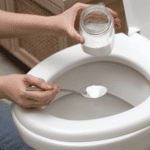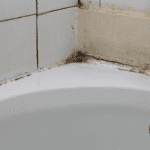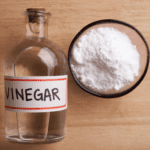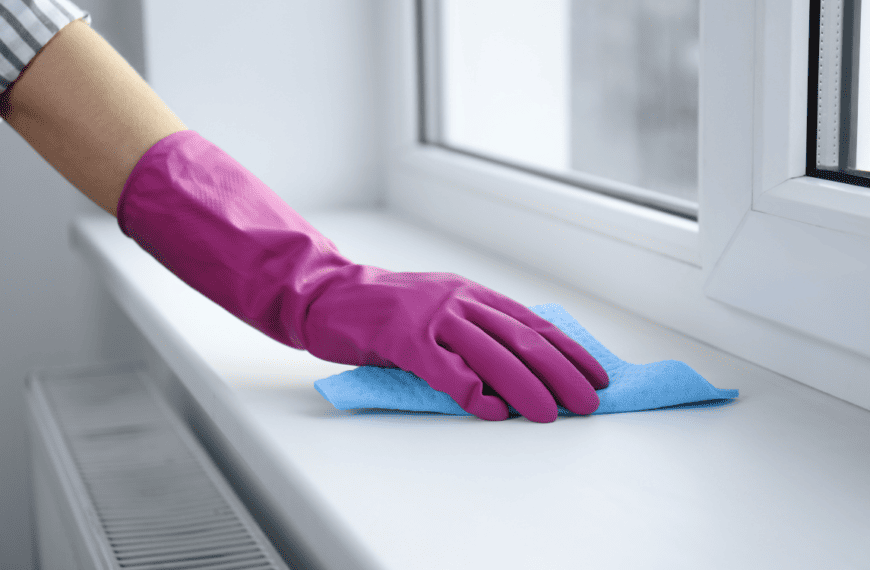Don’t look now, but you likely have some spoiled food sitting in your fridge. So says a OnePoll survey that found the average American has no less than five items past their expiration date inside their refrigerator.
You don’t need to worry too much about occasional fridge smells. Food spoilage is natural, and thankfully, so are many of the solutions to a stinky refrigerator! To help make a nasty task a little simpler, we’ll show you the easiest and safest ways to attack bad smells in the fridge with natural ingredients.
Clean Away Bad Smells Naturally
The first step in removing rotten refrigerator smells is to take out and toss the expired food causing the bad smell. Sometimes, throwing out the bad food is enough, but in many cases, you’ll have trapped odors to manage long after you get rid of the source.
That means you may have some fridge cleaning on your hands. And there’s no better time to employ natural products to neutralize odors and bring a pleasant, clean aroma back to one area that deserves it.
1. Clean with Vinegar
The best natural cleaner for refrigerators is distilled white vinegar. The acetic acid in the vinegar helps break down food stains, absorb odors, and even kill some common kitchen bacteria. It isn’t harsh on fridge plastic, and you don’t have to worry about it harming your food.
Mix an all-purpose spray of one part warm water and one part vinegar. Vinegar odor tends to dissipate quickly, but in a sealed environment like a fridge, it may hang around longer than you like. Add a few drops of your favorite essential oil if you want a more pleasant smell.
Use your vinegar cleaner like a standard all-purpose spray. Spray the fridge’s interior, including all the shelves and drawers. Wipe down the surfaces with a soft cloth, paying close attention to spilled food, as it will likely cause foul refrigerator smells to return before long.
2. Use a Baking Soda Paste
Baking soda is arguably the most versatile eco-friendly cleaning product. On delicate surfaces like a fridge’s interior walls, it’s the perfect natural solution for tough messes and foul odors. It’s non-abrasive yet offers excellent scrubbing power while also helping to absorb bad smells.
You can use baking soda in varying concentrations with water to achieve a desired effect. Mixing ¼ cup of baking soda with one quart of warm water makes a practical deodorizing wash. Alternatively, you can apply a thick paste with more baking soda to manage tough grime.
3. Clean the Refrigerator with Lemon
If you love a citrusy scent (or you’re out of vinegar and baking soda), try cleaning your fridge with lemon juice! The citric acid in lemons helps break down residues, and the fresh aroma will destroy lingering smells.
Add pure lemon juice to a soft cloth, and use it to wipe down your fridge. There’s no need to rinse afterward. The pleasant scent will get rid of any potential odors that may creep in.
As an extra measure, scoop the flesh from the juiced lemon, pour in some salt, and put it in your fridge as a natural deodorizer. Lemon juice also makes an excellent degreasing additive to your vinegar and water cleaner. Add two teaspoons of lemon juice to every two cups of vinegar/water cleaning solution.
Natural Approaches to Absorb Odors
After getting your fridge clean, there may be an ongoing need to remove bad smells. At this stage, a natural solution like baking soda or coffee grounds can prevent odors from reaching your nostrils the next time you open the fridge door.
Open containers of baking soda stay out of the way but don’t provide enough surface area for it to be efficient at odor removal. The best method is to spread baking soda on plates or baking sheets. Put one on the top shelf and one on the bottom shelf to absorb as many refrigerator smells as possible.
Dry coffee grounds boast plenty of odor-eliminating nitrogen, offering fridge freshening benefits similar to baking soda. You can dry out used grounds or put fresh grounds on a cookie sheet or plate. Swap them out every few days to maintain a delicious aroma of coffee beans in the fridge.
If you don’t have either of these handy odor absorbers, try placing another all-natural option on your fridge shelf to get rid of a bad smell:
- Cotton balls soaked in vanilla extract
- Half a lemon peel filled with salt or cloves
- Crumpled newspaper
- A small bowl of dry oats
One of the best natural solutions is activated charcoal, which you can often buy at pet stores. Fill a coffee filter or even a thin sock with charcoal for a simple DIY deodorizer. And like coffee grounds, activated charcoal is also a helpful material to recycle into your garden soil!
More Chemical-Free Methods to Remove Bad Smells
To cover all of your bases, you may want to clean your evaporator and condenser coils. These components help regulate refrigeration and heat-expulsion, so cleaning them can help optimize performance and keep your food safe. Reference your owner’s manual for instructions on accessing them.
Cleaning your drip pan may also help get rid of stinky odors if you have tried everything else. Although they generally take care of themselves, stagnant water can sometimes build up and lead to mold growth. You can usually access and clean your drip pan by removing the front kickplate or a back panel at the bottom of the unit.
Air Out the Refrigerator
A clean fridge can still carry a stink, so if your cleaners and deodorizers still didn’t do the trick, you may need to go the extra mile to get rid of the fridge smell for good. That means you should unplug your refrigerator and air it out for a few hours or even a few days.
Airing out the refrigerator overnight is generally long enough to let the smell escape. After you plug it back in, put baking sheets of baking soda on different shelves to absorb odors from the cool circulating air. Leave the door closed, and let the refrigerator cool for at least 12 hours. By the time you open it, the smell should be gone.
How to Keep Your Fridge Smelling Fresh
Nothing makes cleaning easier than eliminating the need for it in the first place. Follow these helpful tips to keep your fridge fresh and free of foul smells.
1. Store Fresh Foods in Airtight Containers
Store food in airtight containers to slow spoilage and help you stay organized. Date leftovers, and plan to use them within 2–3 days. Use glass storage containers, as plastic is more likely to absorb bad odors and become more challenging to clean.
2. Use a Refrigerator Odor Eliminator
While a baking sheet of coffee grounds or baking soda is effective, a fridge deodorizer is easier to manage and works longer to absorb refrigerator smells.
A consumer fridge odor eliminator typically comes in a compact, spill-free container that can last a month or more before needing replacement. The best refrigerator deodorizers use activated charcoal or other natural odor absorbers that make disposal safe and environmentally friendly.
3. Manage Your Fridge Temperature
Refrigerators slow bacteria growth, but they don’t stop it. At a certain temperature, bacteria can thrive and spread without interference to accelerate spoilage and create a foul smell.
According to the FDA, your refrigerator temperature should be 40°F or lower. Set your freezer to 0°F. Keep an appliance thermometer in the refrigerator if your model doesn’t have one built in, and make it a habit to check the temperature frequently,
4. Learn How to Use Your Crisper Drawers
Many people know crisper drawers are for fruits and veggies, but that’s about it. And unfortunately, using them as catch-alls for produce will likely do more harm than not using them at all.
Many fruits, such as apples, plums, and peaches, produce a lot of ethylene gas, an essential factor in ripening. As these items release the gas, they can cause sensitive produce to go bad quicker. Using crispers correctly will reduce ethylene gas transfer and slow food spoilage.
Your crisper drawers will keep your fruits and vegetables fresh longer and help you avoid many of the bad odors that plague a stinky fridge. Follow these rules to use your crispers correctly:
- Close ventilation for vegetable drawers to retain humidity
- Open ventilation for fruit drawers to release humidity
- Consider storing low-humidity fruits like citrus on a fridge shelf for visibility
- Don’t mix ethylene producers with other produce
- Add a refrigerator deodorizer to crisper drawers to better absorb ethylene gas
5. Change Filters Regularly
Mold and other microbes can build up in your refrigerator’s water and air filters if you don’t tend to them regularly. Over time, this can lead to a bad smell in your refrigerator, freezer, ice cubes, and water. Change water and air filters every six months or per your manufacturer’s instructions.
Book a Specialty Cleaning with Anita’s!
It doesn’t take harsh chemicals or expensive materials to prevent odors from filling your refrigerator. With these natural solutions, you’ll love how easy and safe it can be to achieve a sparkling clean fridge.
If you’re having a hard time getting rid of funky fridge odors, our team at Anita’s is here to lend a helping hand. With our simple booking system, it only takes a few minutes to schedule a custom cleaning that works around your schedule and needs. Request a specialty service today to take care of the most challenging kitchen-cleaning projects.









